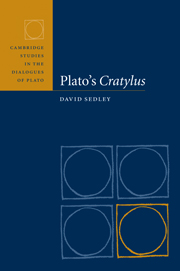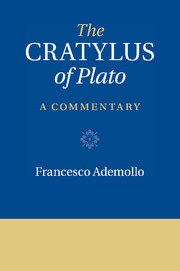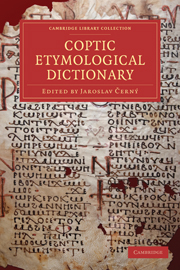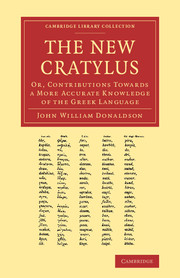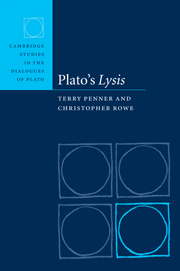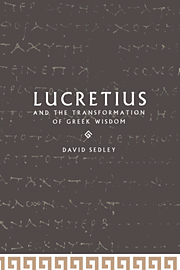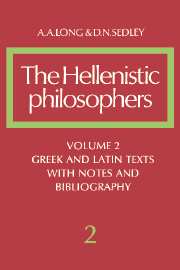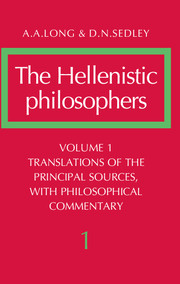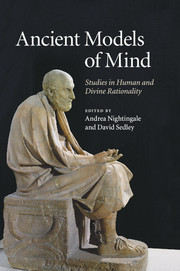Plato's Cratylus
£42.99
Part of Cambridge Studies in the Dialogues of Plato
- Author: David Sedley, University of Cambridge
- Date Published: September 2007
- availability: Available
- format: Paperback
- isbn: 9780521034029
£
42.99
Paperback
Other available formats:
Hardback, eBook
Looking for an inspection copy?
This title is not currently available on inspection
-
Plato's Cratylus is a brilliant but enigmatic dialogue. It bears on a topic, the relation of language to knowledge, which has never ceased to be of central philosophical importance, but tackles it in ways which at times look alien to us. In this reappraisal of the dialogue, Professor Sedley argues that the etymologies which take up well over half of it are not an embarrassing lapse or semi-private joke on Plato's part. On the contrary, if taken seriously as they should be, they are the key to understanding both the dialogue itself and Plato's linguistic philosophy more broadly. The book's main argument is so formulated as to be intelligible to readers with no knowledge of Greek, and will have a significant impact both on the study of Plato and on the history of linguistic thought.
Read more- A serious attempt to show how the study of etymology fits into Plato's philosophical outlook
- Illuminates the importance of the Cratylus for understanding both Plato's work as a whole, and his own conception of it
- Written to be accessible to students and non-specialists and assumes no prior knowledge of Plato or of Greek
Reviews & endorsements
'… an extraordinarily rich book, providing both a main thesis and a number of intelligent readings of single passages … Sedley's book has struck me as an intensely humane and - if I may say so - Platonic piece of writing. His prose is admirably terse and vivid, the very answers he gives to the problems posed by the Cratylus raise issues and questions on a higher level, so that one has always the exciting impression of having embarked on a true philosophical journey.' Journal of Hellenic Studies
See more reviews'Every page of this book is characterized by the sanity of judgement and depth of knowledge of ancient thought which are the hallmarks of the author. It is a model of clarity and of austere stylistic elegance. The volume inaugurates C. U. P.'s new series Cambridge Studies in the Dialogues of Plato, under the general editorship of M. M. McCabe; it sets a high standard for subsequent contributors.' British Journal for the History of Philosophy
Customer reviews
Not yet reviewed
Be the first to review
Review was not posted due to profanity
×Product details
- Date Published: September 2007
- format: Paperback
- isbn: 9780521034029
- length: 204 pages
- dimensions: 228 x 150 x 11 mm
- weight: 0.32kg
- availability: Available
Table of Contents
Preface
1. Author and text
2. Plato the etymologist
3. Linguistic science
4. Etymology at work
5. The dominance of flux
6. The limits of etymology
7. A Platonic outcome
References
Index locorum
General index.
Sorry, this resource is locked
Please register or sign in to request access. If you are having problems accessing these resources please email [email protected]
Register Sign in» Proceed
You are now leaving the Cambridge University Press website. Your eBook purchase and download will be completed by our partner www.ebooks.com. Please see the permission section of the www.ebooks.com catalogue page for details of the print & copy limits on our eBooks.
Continue ×Are you sure you want to delete your account?
This cannot be undone.
Thank you for your feedback which will help us improve our service.
If you requested a response, we will make sure to get back to you shortly.
×
